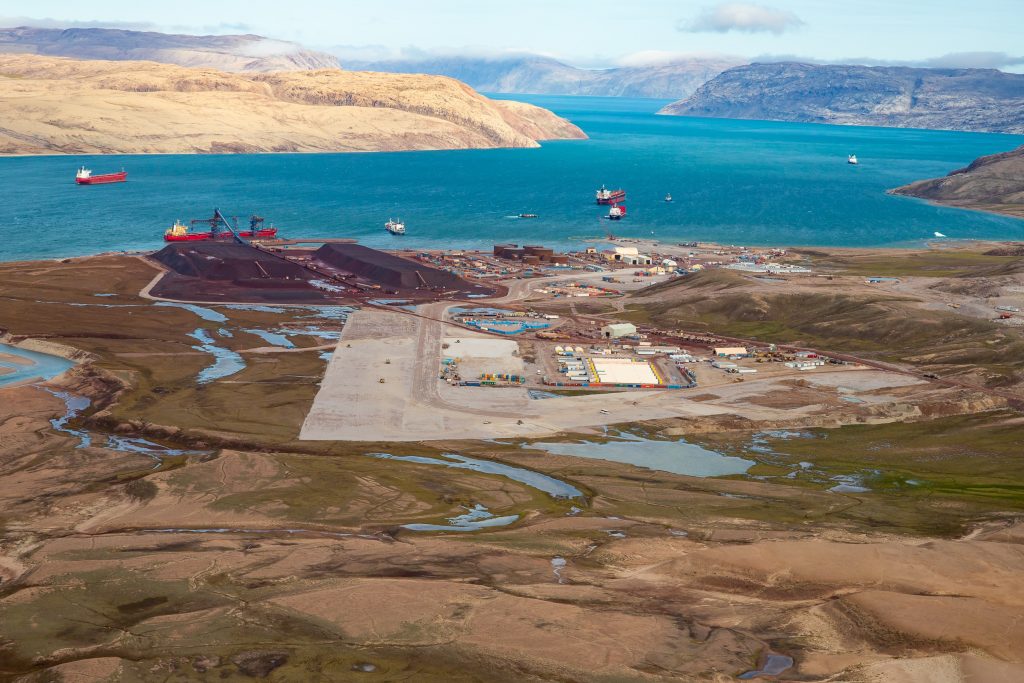Mary River mine could be mothballed, says Baffinland president
Steps to slow operations ‘were not easy decisions,’ Brian Penney says.

Baffinland Iron Mines Corp.’s president and CEO Brian Penney says there’s a possibility the company might mothball its Mary River iron mine next year.
Penney explained in an April 30 letter that shareholders are saying they won’t invest any more money because there have been delays securing the approval to expand the operation in northern Baffin Island.
“The letter was sent to all employees and contracting staff,” said Heather Smiles, Baffinland’s manager of stakeholder relations.
“This letter is intended from an internal perspective to communicate to our employees on what to expect.”
Penney also cited forecast reductions in iron ore prices in future years as a contributing factor, and said cash generated by the mine for the remainder of this year will be used to pay down debt and shield the company from the expected downturn in the iron ore market.
“If the iron ore price falls below US$100 per tonne, Baffinland will evaluate its options, which include making preparations for placing the operation on care and maintenance in 2022,” he stated.
Iron ore was selling for US$185 on Tuesday, according to Market Insiders website, and has been above US$100 since June 2020.
Baffinland wants to double the output at its Mary River mine as part of a project it’s calling a Phase 2 expansion. It would see the Oakville, Ontario-based mining company build a 110-kilometer railway from Mary River to Milne Inlet and increase ship transits to 176 each season.
That proposal is being assessed by the Nunavut Impact Review Board, which will make a recommendation to the federal minister of northern affairs, who has the final say.
Baffinland’s largest shareholder is Nunavut Iron Ore Inc., which owns 72 percent of the company, and is controlled by a Texas-based private equity firm called the Energy and Minerals Group. The European steel giant ArcelorMittal owns the other 28 percent.
To complete the expansion, the shareholders would have to invest between $1.2 billion and $1.3 billion, according to a recent credit report on Baffinland, prepared by Moody’s Investors Service.
In his letter, Penney said the Phase 2 expansion, including its shift to lower-cost rail transportation, instead of trucking, and increased shipping volumes, “would be necessary to ensure the mine’s ongoing viability in the future.”
In January, when the Nunavut Impact Review Board hearing started up again after a 14-month hiatus, Penney offered a similar warning — that the Mary River iron mine couldn’t continue operating unless it was allowed to grow. The hearing adjourned in February after two weeks.
It resumed briefly in April but was temporarily suspended when the COVID-19 outbreak hit Iqaluit.
Both the Qikiqtani Inuit Association and Nunavut Tunngavik Inc. have said they are not prepared to support the expansion.
To reduce further financial losses, Penney said the mine will begin to send out Phase 2-related contractor equipment that is on site now during the summer sealift.
“We are also beginning the process of cancelling additional sealift coming to site this summer that do not carry essential equipment,” he wrote.
“These were not easy decisions and I regret the uncertainty they represent for our employees and the impact they will have on the contractor businesses that depend on the Mary River project.”